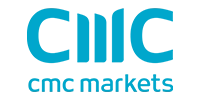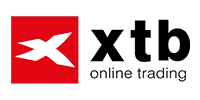Table Of Contents
- Best FOREX Brokers 2025
- Best FOREX Brokers and Platforms For 2025
- What is FOREX and Why Do We Need a Broker?
- How to Open a Trading Account to Start Trading FOREX
- How Much Should Beginners Start to Trade With?
- How to Start Learning about FOREX Trading
- Can You Trade Without Prior Experience?
- How Do I Choose the Best FOREX Broker?
- Regulatory compliance:
- Account security:
- Range of assets:
- Trading platform and tools:
- Costs and fees:
- Execution speed:
- Customer service:
- Educational resources and research:
- What are FOREX Regulations and How to Ensure Your Broker is Licensed?
- What Assets and Instruments Can FOREX Brokers Offer?
- What are Competitive Fees at the Best Brokers?
- What You Need to Know About Payments, Deposits, and Withdrawals
- What is The Best Customer Service Provided by FOREX Brokers?
- What Tools and Platforms Should FOREX Brokers Offer?
- Which FOREX Broker has the Best Platform?
- Which FOREX Broker Charges the Lowest Fees?
- Which FOREX Broker offers the Most CFDs?
- Which FOREX Broker Offers the Most Assets?
- Which is the Best FOREX Broker for Professionals?
- Pro Tips for Choosing the Best FOREX Broker
- Leverage:
- Stop out:
- Margin:
- Technical aspects of the broker’s website
- Ask other traders on our network
- FOREX Trading Scams and How to Avoid Them
- Will your money be protected if your broker becomes insolvent?
- The dos and don'ts of FOREX brokers
- What is the Difference Between a Dealing-Desk and an Agency Broker?
- Who is Arincen and What Are Our Services?
- Conclusion
- Methodology
Arincen’s Best FOREX Brokers List for 2025
With many years of meticulous FOREX broker testing, Arincen stands out as a voice of authority. Our analyses, shaped by exhaustive data collection, are trusted by many. Each year, we gather 120 data points from more than 100 brokers. Our team of more than 20 people collaborate extensively to produce high-quality broker reviews like this one. For a detailed explanation of how we test brokers, navigate to the bottom of this article.
Note: We earn money by selling ads, placements, or through partnerships with some companies we have agreements with, learn more.
You’re here because you want to know who the best FOREX brokers are in 2025. You may be a new trader, or you’ve been in the game for some time, and you just want to see if you are getting the value you need from your broker.
We understand the importance of finding the best deal, especially with time and money being such important commodities. You can’t afford to waste either commodity on a broker that does not serve you. That’s why we take our broker research seriously. In what follows, we list the best FOREX trading platforms today. These findings are based on in-depth research by Arincen experts. We’ve left no stone unturned in our effort to point you in the direction you need to go.
Best FOREX Brokers 2025
| Company Name | Regulations | Minimum Deposit | Main Branch | |
|---|---|---|---|---|
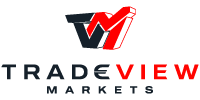
Tradeview |
SCA | $0 | New York, United States of America | |

ICM capital |
FCA | 0$ | London | |
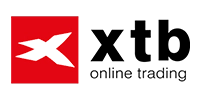
XTB |
FCA | 0$ | United Kingdom | |

IG Group |
FCA | $50 | United Kingdom |

| Company Name | Tradeview |
| Regulations | SCA |
| Minimum Deposit | $0 |
| Main Branch | New York, United States of America |

| Company Name | ICM capital |
| Regulations | FCA |
| Minimum Deposit | 0$ |
| Main Branch | London |

| Company Name | XTB |
| Regulations | FCA |
| Minimum Deposit | 0$ |
| Main Branch | United Kingdom |

| Company Name | IG Group |
| Regulations | FCA |
| Minimum Deposit | $50 |
| Main Branch | United Kingdom |
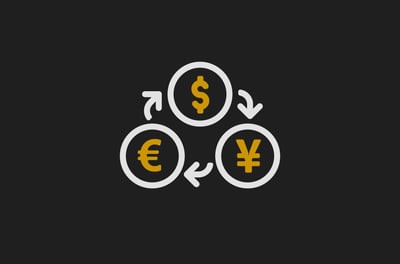
Best FOREX Brokers and Platforms For 2025
Take a look at our experts' top 7 FOREX brokers for 2025. With so many choices out there, it's tough to select the best online brokerage. In this case, we've done the work for you. Here is a summary of each broker according to specific criteria, along with their pros and cons:
ICM - Capital 91.10: Best Deposit and Withdrawal Broker
Tradeview - 90.00: Trusted broker that offers very low trading costs as well as comprehensive financial literacy materials for its clients.
XTB - 85.55: Best Customer Service Broker
IG - 85.45: Best Regulations Broker plus Convenient Platform
Saxo Bank - 80.09: Excellent Private Trading Platform
CMC Markets - 80.07: More than 9,000 Assets
ThinkMarkets - 80.05: Aimed at the Audience of Traders

Tradeview
| Broker Evaluation | 9.40 |
| Regulations | SCA |
| Minimum Deposit | $0 |
| Islamic Account | Yes |
| Payment Methods | Bank Transfer, Credit Cards, Crypto, Electronic banks, local deposits |
| Main Branch | New York, United States of America |
| Customer Service | |
| Demo Account | No |
| Trading Platforms | Metatrader 4, Metatrader 5, cTrader, API/FIX |
Pros
-
Variety of trading platforms, such as MT4, MT5, cTrader, and Currenex, catering to different trading preferences and strategies.
-
Provides ECN trading through its innovative Liquidity Connector®, granting direct access to over 50 banks and liquidity providers. Offers tight spreads starting from 0 pips.
-
A low minimum deposit of only $100 is required to start trading, making it accessible to a wide range of traders.
-
Offers a broad range of financial instruments, including FOREX, indices, stocks, cryptocurrencies, and commodities, thus catering to diverse trading interests.
-
Offers educational materials and a demo account, suitable for both beginners and experienced traders looking to refine their strategies.
-
Supports automated trading through the use of Expert Advisors (EA) on MT4 and MT5 platforms.
-
Regulated by CIMA, MFSA, and will soon be regulated by the UK’s Financial Conduct Authority (FCA).
-
Offers global customer service in multiple languages, catering to international traders.
-
Offers competitive leverage up to 500:1.
-
Charges no fees for deposits, making it cost-effective for traders to fund their accounts.
Cons
-
While regulated by CIMA and the MFSA, the broker is still in the final stages of becoming regulated by the tier-one FCA.
-
This means, unfortunately, that the broker currently has no way of offering compensation to affected traders if the broker goes bust. Of course, once FCA regulation is obtained, it will be mandatory for the broker to be part of the Financial Services Compensation Scheme (FSCS) where you could be entitled to compensation of up to £85,000.
-
Trades on the Innovative Liquidity Connector® account are subject to commission charges, which may add to trading costs.
-
Lacks a dedicated mobile app, relying instead on the mobile versions of its available trading platforms.
-
While offering high leverage up to 400:1 can be an advantage, it also introduces significant risks, especially for new traders.

ICM capital
| Broker Evaluation | 9.11 |
| Regulations | FCA |
| Minimum Deposit | 0$ |
| Islamic Account | yes |
| Payment Methods | Bank transfer, credit card, Electronic Banks, Crypto |
| Main Branch | London |
| Customer Service | Market Opening Hours |
| Demo Account | Yes |
| Trading Platforms | MT4, MT5, C TRADER, Web Platform |
Pros
-
Segregated client funds.
-
Regulated by the UK’s FCA.
-
Long trading history from 2009.
-
More than 300,000 traders, showing trust.
-
Decent funding options.
-
No swaps.
-
MetaTrader4 (MT4) desktop and mobile download.
-
Competitive spreads
-
ECN spreads starting from zero pips.
-
Fast execution and no-requotes.
Cons
-
No proprietary platform.
-
No US services.
-
Limited cryptocurrency offerings.
-
Inactivity fees which deter casual traders.

XTB
| Broker Evaluation | 8.55 |
| Regulations | FCA |
| Minimum Deposit | 0$ |
| Islamic Account | yes |
| Payment Methods | Bank transfer, Credit Card, Electronic Banks |
| Main Branch | United Kingdom |
| Customer Service | Market Opening Hours |
| Demo Account | Yes |
| Trading Platforms | MT4, xStation |
Pros
-
20-year history of operation.
-
Regulated by the FCA (UK) and CySEC in Cyprus.
-
Globally recognized, having won multiple awards.
-
Some of the lowest FOREX spreads in the market.
-
Offers protection for client accounts.
-
Emphasis on customer service.
-
Excellent support, as well as learning and research tools.
Cons
-
Does not accept US clients.
-
Number of instruments offered is average-sized.
-
No GSLO.
-
No back-testing or automated trading capabilities.
-
No social trading.

IG Group
| Broker Evaluation | 8.54 |
| Regulations | FCA |
| Minimum Deposit | $50 |
| Islamic Account | yes |
| Payment Methods | Bank transfer - credit card - Electronic Banks |
| Main Branch | United Kingdom |
| Customer Service | Market Opening Hours |
| Demo Account | Yes |
| Trading Platforms | IG Trading, MT4,ProRealTime,L2 Dealer |
Pros
-
Intuitive mobile and tablet platforms.
-
Low spread costs.
-
Client education offering extensive research materials.
-
Regulated by many reputable authorities.
-
UK and EU clients get negative balance protection.
-
Financially stable and publicly-listed.
-
Rapid response to customer service queries.
-
Extensive range of trading assets.
-
Powerful social trading community.
Cons
-
U.S. clients are limited to FOREX trading only.
-
U.S. clients do not receive negative balance protection.
-
IG CFD prices can be high by industry standards.
-
Limited product portfolio of only CFD and options in many countries.
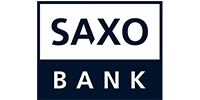
SAXO BANK
| Broker Evaluation | 8.09 |
| Regulations | FCA |
| Minimum Deposit | 10,000$ |
| Islamic Account | No |
| Payment Methods | Bank transfer, Credit Card |
| Main Branch | Copenhagen, Denmark |
| Customer Service | Market Opening Hours |
| Demo Account | Yes |
| Trading Platforms | SaxoTrader |
Pros
-
Extensive range of offerings.
-
Offers portfolio-based margin trading for pros.
-
Regulated by top regulators.
-
Excellent trading platforms.
-
Diverse account types.
-
Among the industry’s best research tools.
-
Offers protection for client accounts.
-
No inactivity fee.
-
No platform fees.
-
No minimum funding for entry-level accounts.
Cons
-
Some bonds, options, and futures fees are high.
-
With so many assets, fees can be confusing.
-
High minimum deposit for Platinum and VIP accounts.
-
Does not accept US clients.
-
No MT4 for traders who are used to the platform.
-
No GSLO.
-
No Islamic accounts.
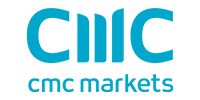
CMC MARKETS
| Broker Evaluation | 8.07 |
| Regulations | FCA |
| Minimum Deposit | 0$ |
| Islamic Account | No |
| Payment Methods | Bank transfer, Credit Card, Electronic Banks |
| Main Branch | United Kingdom |
| Customer Service | Market Opening Hours |
| Demo Account | Yes |
| Trading Platforms | Proprietary Platform, MT4, Web Platform |
Pros
-
Extensive range of offerings.
-
Regulated by the FCA (UK) and other top regulators.
-
Low FOREX fees.
-
Emphasis on education and customer service.
-
Great Web and mobile platforms.
-
Offers protection for client accounts.
-
Research amenities are industry leading.
Cons
-
Does not accept US clients.
-
High CFD spreads for certain indices.
-
It only offers CFD trading, so traders cannot own the underlying asset.
-
Does not support deposits and withdrawals through electronic payments.

think markets
| Broker Evaluation | 8.05 |
| Regulations | FCA |
| Minimum Deposit | $0 |
| Islamic Account | Yes |
| Payment Methods | Bank transfer - credit card - Electronic Banks - Crypto |
| Main Branch | Australia |
| Customer Service | Market Opening Hours |
| Demo Account | Yes |
| Trading Platforms | Proprietary Platform, Web Platform, MT4, MT5 |
Pros
-
Beginner assistance is offered through round-the-clock channels.
-
Spreads are as low as 0.0 pips.
-
Round-the-clock expert customer service.
-
CFD shares and indices come at no extra fee.
-
Zero broker fees for FOREX trading.
-
Technical analysis and quality market information.
Cons
-
No binary options are offered.
-
Commissions are charged for two account types.
-
Range of tradeable assets is not as wide as some competitors.
-
No US clients allowed.
There is a high degree of risk involved in trading securities like FOREX, or CFDs, which are highly complex instruments. As a trader, you could be exposed to excessive leverage, questionable broker tactics, market volatility, and limited regulatory protection. Despite your best trading techniques and risk management strategies, your efforts may not be profitable, and you could suffer losses.
What is FOREX and Why Do We Need a Broker?
The FOREX market involves participants from all over the world, including banks, financial institutions, governments, corporations, and individual traders. It is a global decentralized marketplace for trading currencies. This market, which determines foreign exchange rates for every currency, includes all aspects of buying, selling, and exchanging currencies at current prices.
In terms of trading volume and liquidity, the FOREX market is by far the largest in the world, at some six trillion dollars daily, followed by the credit market. The FOREX market operates 24 hours a day and five days a week (Monday through Friday), except for international holidays.
By trading FOREX online, you can make extra income, which has made retail trading highly popular in recent years. FOREX trading is facilitated by the best online brokerage firms, which enable clients to buy and sell through a trading platform. Many users enjoy the sheer thrill of partaking in this global network of buyers and sellers where transactions are conducted electronically within fractions of a second.
How to Open a Trading Account to Start Trading FOREX
- national identity documents, and
- proof of address.
How Much Should Beginners Start to Trade With?
How to Start Learning about FOREX Trading
A trading website like en.Arincen.com is a great place to start. We have a large list of curated articles that can give you all the information you need on common FOREX trading terms, like
That said, we will cover some of these topics later in this article. We have also taken the time to prepare detailed articles on important topics, such as FOREX trading strategies and risk-management strategies. Additionally, once on our website, you will find helpful video courses that cover the basics of FOREX trading. With this range of knowledge, you will be well on your way to trading success.
Remember also that your broker will normally have developed a detailed education and research repository themselves. That is also a good place to bolster your FOREX knowledge, with the extra benefit that your broker’s information will be slanted toward their own platform and resources, which makes it useful. Although this is not the primary aim of this article, we will let you know about some of the most important terms you will come to understand as your trading journey unfolds:
Pips
A pip is the condensed version of the term "percentage in point." A pip is a measure of how much the value between two currencies changes. The relative value between currency pairs is shown in number form with four decimal places. A pip represents the last of those four decimals and is therefore a small unit of change.
Lot
In FOREX trading, the term “lot” refers to the standardized size of a trade. It is the unit of measurement used to describe the volume or size of a FOREX trade. There are three main types of lots in FOREX trading: standard lot, mini lot, and micro lot.
Position
A position size in FOREX trading refers to the number of lots or units of a particular currency pair that a trader buys or sells in a trade. Position size is an important aspect of FOREX trading as it directly affects the potential risk and reward of a trade.
Spread
A term you will encounter most often is the spread, which is broadly defined as the difference between your FOREX broker's sell rate and buy rate when exchanging or trading currencies. We will tell you more about spreads later.
Japanese candlesticks
A Japanese candlestick is a visual representation of price movements within a certain trading period. In the realm of retail trading, candlesticks can provide a clear, visual understanding of market dynamics. Each candlestick on the chart provides information on the opening, closing, high and low prices of the currency pair during that timeframe.
Technical analysis
Technical analysis is the study of historical price and volume data to identify patterns, trends, and potential future price movements. Technical analysts use various tools and indicators, such as chart patterns, moving averages and oscillators to analyze market data and make trading decisions.
Fundamental analysis
This type of analysis involves the careful study of
economic
financial, and
political factors.
These may influence the value of a currency or other financial instrument. You can get this information by reading news articles to analyze such factors as
interest rates
GDP
inflation
political stability, and
global events.
Tip: Invest in Your knowledge
For every aspiring retail trader, knowledge is key to a successful trading journey. We invite you to delve into Arincen's goldmine of insights, strategies, and expert analyses. Whether you're just embarking on your trading venture or trying to level up your trading game, our resources are designed to give you all the information you need. Visit our educational resources here.
Can You Trade Without Prior Experience?
Tip for those who have no experience
We believe that a solid foundation in education and research is essential for every successful trader. That’s why we’ve created a set of resources specifically for you. Our comprehensive articles provide an understanding of the basics, while our videos offer insights from industry insiders. Stay updated with the latest developments in the market through our newsfeed, signals, and detailed analytics.
How Do I Choose the Best FOREX Broker?
When selecting an online broker for retail trading, especially in the FOREX market, there are several key factors to consider. We’ve made the list of the most important “holy grail” factors for you to pay the closest attention to:
Regulatory compliance:
No matter where you live, you need to choose a broker based on how well they are regulated. In developed nations in Europe, and North America, as well as in parts of Asia, the quality of regulation is in line with the quality of the overall financial infrastructure. We’ll tell you more about the best regulators in the next section.
Account security:
Look for brokers that offer high levels of security for your funds and personal information. This includes data encryption and two-factor authentication.
Range of assets:
Not only should your broker give you access to a healthy slate of currency pairs drawn from major, minor, and exotic, but the best multi-asset online brokers also give you access to other financial assets, such as crypto, commodities, bonds, CFDs, ETFs, and indices.
Trading platform and tools:
The trading platform should be user-friendly, reliable, and equipped with the right tools for analysis (like charts, indicators, and newsfeeds).
Costs and fees:
Fees eat away at your profits. That’s why you should understand the broker's fee structure, including spreads, commissions and any other charges that might apply. Compare these across different brokers to find competitive rates.
Execution speed:
Fast execution speeds are crucial in FOREX trading to ensure that you get the price you expect without significant slippage.
Customer service:
Good customer support can be vital, especially for new traders. Look for brokers that offer timely and helpful support via various channels (phone, email, live chat).
Educational resources and research:
Access to comprehensive educational materials, tutorials, webinars, and up-to-date market research can be extremely helpful for new traders to learn and make informed decisions.
Expanding on some of the important points mentioned above:
What are FOREX Regulations and How to Ensure Your Broker is Licensed?
Online brokers who offer their services to FOREX traders must be regulated by a top-notch oversight body. Regulated brokers are compelled to stick to common best practices, like keeping their operating funds separate from client funds, complying with strict leverage rules as we have mentioned and staying away from offering bonuses and overly generous promotions.
Tier-1 regulators can be found in the most advanced countries. Prime examples of these include but are not limited to, the Financial Conduct Authority (FCA) in the UK, the Cyprus Securities Exchange Commission (CySEC) in Cyprus, the Australian Securities and Investments Commission (ASIC), the Financial Services Agency (FSA) in Japan, and the National Futures Association (NFA) in the US.
Tier-2 and tier-3 regulators in lesser economies do not provide you with the right level of oversight that will ensure your interests as a trader are protected in times of trouble. However, based on where you live, if you have no choice but to work with a broker that is not based in a developed economy, it is still better to choose a regulated broker over an unregulated broker. This will give you the opportunity to raise the alarm if you have been scammed or if the broker becomes insolvent.
If you want to learn more about some of the best-regarded regulators, read our article on regulation here. To ensure that your broker is legit, you can follow these steps:
Ask the broker to explain its FOREX product, with specific emphasis on regulation
Check if the broker is registered with a top-tier regulator or at least the applicable regulator in your area
Ask how the broker plans to compensate you if it goes insolvent, and
Stay on top of your account and make sure all transactions are legitimate
Here’s a list of major reasons your broker must be regulated:
Safety of funds:
A regulated broker must comply with strict regulations to protect client funds, including segregating client funds from the company's own funds.
Fair trading practices:
A regulated company must adhere to strict guidelines ensuring products and services are offered fairly and without manipulation, helping create a level playing field for all clients.
Transparency:
The law compels regulated brokers to be transparent with clients, which assures you of safe, fair trading. In practice, this looks like brokers admitting openly that FOREX trading is highly risky, and you could lose your money.
Protection from fraud:
Regulatory authorities protect clients from fraudulent activities and scams and ensure that FOREX brokers operate within set guidelines that safeguard their clients' interests.
Be Careful of Non-Regulated Brokers
Your broker should be regulated by a reputable authority who has a history of strong oversight. Your broker does not have to be regulated by an overseas watchdog, you can also go with a regulator in your jurisdiction. To check if your broker is registered with a regulator, navigate to the regulator’s official website.
What Assets and Instruments Can FOREX Brokers Offer?
- FOREX
- Commodities
- CFDs
- Equities or stocks
- Indices
- Cryptocurrencies
- Bonds
- Options and Futures
| Brokers | Currency pairs | Stocks | Indices | Commodities | Crypto | ETFs |
| Tradview | 80 Pairs | 5000 Shares | 10 Indices | 10 Commodity | 30 Coins | Unavailable |
| ICM Capital | 67 Pairs | 89 Shares | 17 Indices | 12 Commodity | 6 Coins | Unavailable |
| XTB | 57 Pairs | 1848 Shares | 36 Indices | 22 Commodity | 22 Coins | 135 ETFs |
| IG | 81 Pairs | 21714 Shares | 49 Indices | 39 Commodity | 11 Coins | 12858 ETFs |
| Saxo Bank | 320 Pairs | 22000 Shares | 49 Indices | 39 Commodity | 9 Coins | 6700 ETFs |
| CMC Markets | 330 Pairs | 8000 Shares | 80 Indices | 100 Commodity | 18 Coins | 200 ETFs |
| Think Markets | 46 Pairs | 3750 Shares | 15 Indices | 11 Commodity | 21 Coins | 350 ETFs |
What are Competitive Fees at the Best Brokers?
Here are the explanations of some of the most common fees and costs associated with retail FOREX trading:
Spreads:
There are two main kinds of spread, one is fixed, and the other is variable. The first step in FOREX trading is identifying the spread differential, defined as the difference between the bid (sell) price and the ask (buy) price of a currency pair. While many FOREX currency pairs are traded without commission, the spread is one “cost” that applies to any trade that you place. This is, indeed, the biggest source of profit for the FOREX broker.
The spread refers to the difference between two prices, such as the bid/ask rate in a currency exchange rate. An example of a good spread is 1.4 pips for the EUR/USD (the narrower the better, this means that a spread of 1.4 pips is better than a spread of 2 pips). You can learn more about this concept in this article.
Commissions:
As for commissions, some brokers charge a commission on trades in addition to the spread.
The commission can be a fixed amount per lot or a percentage of the spread. Commission-based accounts are typically used by professional traders who require tighter spreads.
Rollover fees:
Rollover fees, also known as swap rates, are charged when a trader holds a position overnight
The fee is based on the interest rate differential between the two currencies in the pair
Rollover fees can be positive or negative, depending on the direction of the trade and the interest rate differential. A word of caution, Islamic trading does not permit traders to pay rollover fees, making Shariah-compliant swap-free accounts the way to go for Muslim traders.
Inactivity fees:
Some brokers charge inactivity fees if you do not make any trades for a certain period. The fee can be a fixed amount or a percentage of the account balance. You can swerve inactivity fees by making at least one trade within the specified period.
It's important to note that different brokers have different fee structures, and you should carefully review the fee schedule of any broker you are considering. Additionally, always consider the total cost of trading, including spreads, commissions, and other fees, when evaluating the profitability of your trades.
| Spread | Commission | Swap | Islamic Account | |
| Currencies | Starting from 1.3 Pips | 0$ | No | Available |
| Stocks | Starting from 18 Pips | 0$ | Yes | Unavailable |
| Commodities | Starting from 2.3 Pips | 0$ | No | Available |
| Indices | Starting from 4 Pips | 0$ | Yes | Unavailable |
| Spread | Commission | Swap | Islamic Account | |
| Currencies | Starting from 0.14 Pips | $0 | No | Available |
| Stocks | Starting from 0 Pips | $0 | No | Available |
| Commodities | Starting from 2 cent | $0 | No | Available |
| Indices | Starting from 0.2 Pips | $0 | No | Available |
| Spread | Commission | Swap | Islamic Account | |
| Currencies | Starting from 0.2 Pips | 0$ | No | Available |
| Stocks | Not Mentioned | 0$ | Yes | Unavailable |
| Commodities | Starting from 8 Pips | 0$ | No | Available |
| Indices | Starting from 4 Pips | 0$ | Yes | Unavailable |
| Spread | Commission | Swap | Islamic Account | |
| Currencies | Starting from 0.6 Pips | 0$ | Yes | Unavailable |
| Stocks | Starting from 2.4 Pips | 0$ | Yes | Unavailable |
| Commodities | Starting from 0.1 Pips | 0$ | Yes | Unavailable |
| Indices | Starting from 0.2 Pips | 0$ | Yes | Unavailable |
| Spread | Commission | Swap | Islamic Account | |
| Currencies | Starting from 0.9 Pips | $0 | Yes | Unavailable |
| Stocks | Starting from $0.02 | $6 | Yes | Unavailable |
| Commodities | Starting from $0.6 | $6 | Yes | Unavailable |
| Indices | Starting from $0.7 | $6 | Yes | Unavailable |
| Spread | Commission | Swap | Islamic Account | |
| Currencies | Starting from 0.5 Pips | $0 | Yes | Unavailable |
| Stocks | Starting from $0.2 | $10 | Yes | Unavailable |
| Commodities | Starting from 0.2 Pips | $0 | Yes | Unavailable |
| Indices | Starting from 0.5 Pips | $0 | Yes | Unavailable |
| Spread | Commission | Swap | Islamic Account | |
| Currencies | Starting from 0.4 Pips | $0 | Yes | Unavailable |
| Stocks | Starting from 0.1% | $0 | Yes | Unavailable |
| Commodities | Starting from $0.19 | $0 | Yes | Unavailable |
| Indices | Starting from 0.4 Pips | $0 | Yes | Unavailable |
What You Need to Know About Payments, Deposits, and Withdrawals
- Bank wire transfer
- Credit / Debit cards, and
- Electronic payment platforms, e.g., Neteller.
| Method | Credit Card | Wire Transfer | Skrill | Neteller | Cryptocurrency | PayPal |
| Deposit fee | 0$ | $0 + Bank commission | 1.9% | 2.5% | Unavailable | 3.75% |
| Withdrawal fee | 0$ | $15 | 1% | $0 | Unavailable | 2% |
| Method | Credit Card | Wire Transfer | Skrill | Neteller | Cryptocurrency | PayPal |
| Deposit fee | 0$ | 0$ | 1.9% | 2.5% | $0 | 3.75% |
| Withdrawal fee | 0$ | 0$ | 1% | $0 | $0 | 2% |
| Method | Credit Card | Wire Transfer | Skrill | Neteller | Cryptocurrency | PayPal |
| Deposit fee | 0$ | $0 + Bank commission | 1% | 1% | Unavailable | Unavailable |
| Withdrawal fee | 1.5% | 30$ | 1% | 1% | Unavailable | Unavailable |
| Method | Credit Card | Wire Transfer | Skrill | Neteller | Cryptocurrency | PayPal |
| Deposit fee | 0$ | $0 + Bank commission | Unavailable | Unavailable | Unavailable | 3.4% + fixed fee |
| Withdrawal fee | 0$ | $0 + Bank commission | Unavailable | Unavailable | Unavailable | 3.4% + fixed fee |
| Method | Credit Card | Wire Transfer | Skrill | Neteller | Cryptocurrency | PayPal |
| Deposit fee | 0$ | $0 + Bank commission | Unavailable | Unavailable | Unavailable | Unavailable |
| Withdrawal fee | 0$ | $0 + Bank commission | Unavailable | Unavailable | Unavailable | Unavailable |
| Method | Credit Card | Wire Transfer | Skrill | Neteller | Cryptocurrency | PayPal |
| Deposit fee | 0$ | $0 + Bank commission | Unavailable | Unavailable | Unavailable | Unavailable |
| Withdrawal fee | 0$ | $0 + Bank commission | Unavailable | Unavailable | Unavailable | Unavailable |
| Method | Credit Card | Wire Transfer | Skrill | Neteller | Cryptocurrency | PayPal |
| Deposit fee | 0$ | $0 + Bank commission | 0$ | 2.5% | Not mentioned | Unavailable |
| Withdrawal fee | 0$ | $0 + Bank commission | 5.50$ | 0-7.5% | Not mentioned | Unavailable |
What is The Best Customer Service Provided by FOREX Brokers?
| Live Chat | Phone | |||
| Available | Available | Available | Available | Available |
| Quick response | Quick response | Fast | Fast | Fast |
| Live Chat | Phone | |||
| Available | Available | Available | Available | Available |
| Quick response | Very Fast | Very Fast | Very Fast | Very Fast |
| Live Chat | Phone | |||
| Available | Available | Available | Available | Not Available |
| Quick response | Very Fast | Moderate | Moderate | Not Available |
| Live Chat | Phone | |||
| Available | Available | Available | Available | Not Available |
| Quick response | Very Fast | Very Fast | Moderate | Not Available |
| Live Chat | Phone | |||
| Available | Available | Not Available | Available | Not Available |
| Quick response | Slow | Not Available | Moderate | Not Available |
| Live Chat | Phone | |||
| Available | Available | Not Available | Available | Not Available |
| Quick response | Moderate | Not Available | Moderate | Not Available |
| Live Chat | Phone | |||
| Available | Available | Available | Available | Not Available |
| Quick response | Moderate | Fast | Moderate | Not Available |
Recommended Brokers
What Tools and Platforms Should FOREX Brokers Offer?
The best FOREX brokers offer platforms that can be used by traders with different requirements. Be they web-based or downloadable, platforms must be customizable with good technical indicators and strong risk-management tools.
Professional traders will be looking for sophisticated platforms with exceptional performance and a seamless trading experience featuring a range of charts, market indicators, and drawing tools. Beginner traders will be looking for an intuitive design, clear action labels, and helpful tips and prompts.
When choosing a trading platform, you should consider a range of features that cater to both novice and seasoned traders. Here are some elements to keep in mind:
Technical analysis tools: The platform should have robust technical indicators to help traders make informed decisions.
Customization and user interface: You should be able to adapt the platform according to your preferences, allowing you to set up your trading environment precisely how you want. We find that the products from the MetaTrader suite, especially MT4, offer excellent features for this purpose.
Platform accessibility: A top-notch trading platform should offer flexibility in terms of access, whether it's web-based or a downloadable application.
Risk-management tools: Trading inherently comes with risks, and a high-quality platform should provide instruments that allow traders to set stop-losses, take-profits, and other crucial order types.
Performance and reliability: Beginner traders especially need a platform that operates seamlessly with minimal downtimes or glitches. This ensures a smooth trading journey, allowing them to focus on market movements rather than technical hiccups.
Learning and educational resources: The best brokers will offer platforms that are not only intuitive but also come with tutorials, guides, and responsive customer support to assist traders in navigating any challenges they might face.
Which FOREX Broker has the Best Platform?
Which FOREX Broker Charges the Lowest Fees?
You will find that ICM’s ECN account comes with the lowest fees. No matter your trading experience level, there is a pricing tier that caters to your needs.
Which FOREX Broker offers the Most CFDs?
Which FOREX Broker Offers the Most Assets?
Which is the Best FOREX Broker for Professionals?
Pro Tips for Choosing the Best FOREX Broker
What are some ways to get the most out of the broker you have carefully chosen? One of the most powerful tools you can use as a trader is leverage. This is a situation where your broker allows you to access larger positions than you would have with your capital. Understanding leverage and associated terms, like stop-outs and margin, will give you an advantage in the market. Here’s what the terms mean:
Leverage:
Leverage allows you to control a large position with a small amount of invested capital. It is often expressed as a ratio, such as 50:1, indicating how much larger the trade can be compared to your own capital. Depending on the regulatory framework within which your broker operates, you'll encounter varying leverage rules. Several key regulators have introduced specific guidelines to safeguard retail traders.
Let's look at some of these leverage rules set by major regulators:
ASIC in Australia:
30:1 for major currency pairs
20:1 for non-major currency pairs, gold, and major stock market indices
10:1 for commodities other than gold and minor stock market indices
5:1 for equities (stocks) and other underlying assets
Swiss Financial Market Supervisory Authority (FINMA) in Switzerland:
FINMA doesn't specify leverage limits as does ASIC. However, Swiss brokers must strictly adhere to robust capital and risk management requirements, ensuring that they do not offer excessively high leverage that could endanger their financial stability or their clients' funds.
CySEC in Cyprus:
CySEC regulations fall closely in line with the European Securities and Markets Authority (ESMA) guidelines and the Markets in Financial Instruments Regulation (MiFIR).
30:1 for major currency pairs
20:1 for non-major currency pairs
10:1 for major indices such as the S&P 500
5:1 for equities (stocks) and other underlying assets
FCA in the UK:
30:1 for major currency pairs
20:1 for non-major currency pairs, gold, and major indices
10:1 for commodities (excluding gold) and non-major equity indices
5:1 for individual equities and other reference values
Leverage, while offering handsome profits, significantly increases potential losses. Engaging in high leverage trading without a robust risk management strategy is like navigating treacherous financial waters without a safety net. Approach leverage with caution, employ sound trading strategies, and always try to develop a comprehensive understanding of market behaviors and how they affect your portfolio when you trade on leverage.
Stop out:
In retail FOREX trading, a stop out is a process where a broker automatically closes one or all of a trader's open positions when their margin level falls to a specific percentage level. The stop-out level is like the margin call level, except that it’s much worse.
Margin refers to the amount of money that a trader needs to deposit with their broker to open and maintain a trading position. It is a percentage of the total value of the position, and it acts as collateral for the broker. The margin is calculated based on the leverage that the trader is using, which is the ratio of the trader's own funds to the amount of money that they are borrowing from the broker. The higher the leverage, the lower the margin requirement, and vice versa.
The stop-out level is when the equity is lower than a specific percentage of the margin used. What does this mean to me? Stop-out and margin levels are the points at which a broker starts liquidating existing positions, so you need to pay close attention to how you are trading.
There are three levels of stop outs in retail FOREX trading:
0% Stop out:
This means that the broker will not automatically close a trader's positions, even if their Margin Level falls to 0%. This is the most favorable stop-out level for traders, but it is rare.
50% Stop out:
This is the most common stop-out level in retail FOREX trading. If a trader's margin level falls below 50%, the broker will start closing their positions automatically until the margin level goes above 50%.
100% Stop out:
This means that a trader's positions will be automatically closed by the broker if their margin level falls to 100%. This is the most unfavorable stop-out level for traders.
Here's an example of a Stop out level at 50%:
Let's say a FOREX broker has a stop out level at 50%. If your margin level falls below 50%, the broker will start closing your positions automatically until the margin level goes above 50%. It's important to note that once the liquidation process has started, it is usually not possible to stop it since the process is automated.
Your broker's customer support team will not be able to help you reverse the process. As such, using protective measures, like stop-loss orders and not over-leveraging, is always a good idea. Additionally, the specific percentage and the order in which positions are closed can vary among brokers, so traders need to be aware of their broker's policy on stop-out levels.
Margin:
Margin trading in FOREX is the term we use to say you have opened a position with leverage. A margin requirement is the amount of money you must deposit to open a leveraged position, often a percentage of the full value of the position. For example, a 1% margin requirement on a $100,000 position would mean that $1,000 must be deposited.
If the market moves against your position and the account value falls below a certain level, known as the maintenance margin, the broker may issue a margin call. This requires you to deposit additional funds to maintain the open positions or the broker may close the positions to avoid heavy losses.
Different brokers have different policies regarding margin trading, including margin requirements, margin call and stop-out practices, and the time given to meet margin calls. For this reason, you must familiarize yourself with your broker's specific policies and you must always implement risk management strategies, such as stop-loss orders to limit potential losses when trading on margin.
Technical aspects of the broker’s website
When it comes to sharing sensitive personal information online, such as a credit card, cyber security is paramount. You should, therefore, always be on the alert for SSL certification and two-factor authentication (especially when registering with a new site).
Ask other traders on our network
Arincen has tried its best to create a supportive environment where traders of all backgrounds come to meet. After all, Arincen’s goal is to simplify the world of trading! Our website provides an excellent set of tools, like our market-leading signals, rolling news coverage, and a bustling community where traders from all sides of the experience spectrum can learn from each other.
FOREX Trading Scams and How to Avoid Them
A regulated broker adheres to a stringent set of guidelines and operational standards, designed to ensure transparency, security, and integrity in all transactions. Electing to trade with an unregulated broker amplifies the risk of financial loss, fraud, and exposure to unethical practices. For a list of the best regulators, read our article here.
Will your money be protected if your broker becomes insolvent?
Some tier-1 brokers, like the FCA and the CySEC, operate compensation schemes that offer investment repayments up to a predefined level to traders affected by broker insolvency or malfeasance. Note that not all regulators, let alone all tier-1 regulators, offer access to compensation schemes. Be sure to ask your broker directly what they offer in terms of investor protection. Some brokers take out private, third-party insurance, and compensation facilities that can prove just as useful if the in-country regulator does not mandate compensation.
The dos and don'ts of FOREX brokers
One of the first things a new FOREX trader should do is check the extent to which the FOREX company abides by the rules and regulations governing its operation. Emphasis must be placed on what it can and cannot do.
There are seven things brokerage firms cannot do:
The FOREX brokerage firm cannot recommend a buy or sell
The FOREX brokerage firm must not provide price or market expectations (rise/fall)
The FOREX firm cannot control your financial dealings (deposit/withdrawal)
The FOREX brokerage firm should not “manage” your portfolio under any circumstance
The FOREX brokerage firm cannot grant a client a bonus unless clear terms guide it beforehand.
The brokerage firm must not use bank accounts not under its name; and
FOREX brokerage firms cannot have or offer the service of account managers.
In short, the role of brokerage firms is strictly confined to facilitating buyers and sellers to come together toward an agreed-upon commission. FOREX brokerage firms that violate any of the seven rules should be avoided.
What is the Difference Between a Dealing-Desk and an Agency Broker?
- First, they buy at lower prices and sell at higher prices; and
- Second, they cash in on the spreads between the bid and ask price.
- work with liquidity providers to give their clients variable spreads, and
- match traders with other traders who would like to take the other side of a trade.
Who is Arincen and What Are Our Services?
- FOREX charts
- Live rates
- The latest in FOREX signals
- Technical analysis
- An online trading academy.
- How to learn about FOREX.
- An up-to-date economic calendar.
Conclusion
Methodology
The expert team at Arincen collected more than 120 pieces of data covering more than 100 licensed FOREX companies. Data collection was done in three ways:
Companies’ websites.
Other websites that have ranked FOREX companies.
A survey questionnaire (referred to here as Survey “1”) was sent to the companies invited to participate in the exercise. We have identified thirteen criteria for our assessment, each containing several aspects and carrying its relative weight. These include licensing, deposits and withdrawals, number of assets, etc.
Afterwards, we validated the data by:
Registering with FOREX companies as a secret shopper and/or as Arincen.
Survey number “2,” in which we asked these companies’ customers for important feedback and experience.
The next step saw us evaluate and rank each company, relying on the arduous work of 15 Arincen employees. We were careful in ensuring the most accurate assessment possible, including considering different languages, as well as the various mobile-app operating systems, e.g., Apple, Samsung etc.
To add credibility to our research project, we sent a final and third survey (referred to here as Survey “3”) to enable participating FOREX companies to evaluate our research and whether it accurately reflects the realities on the ground. We were fortunate enough to receive a mark of 9.9 out of 10! We have kept to a minimum the margin of error, which stood at a measly 1%. To learn more about how we came up with the evaluation, please click here.
Recommended Brokers
Forex Risk Disclaimer
Trading foreign exchange on margin carries a high level of risk, and may not be suitable for all investors. The high degree of leverage can work against you as well as for you. Before deciding to trade foreign exchange you should carefully consider your investment objectives, level of experience, and risk appetite. The possibility exists that you could sustain a loss of some or all of your initial investment and therefore you should not invest money that you cannot afford to lose. You should be aware of all the risks associated with foreign exchange trading, and seek advice from an independent financial advisor if you have any doubts.
FAQ
The FOREX market is the largest financial market in the world at some six trillion dollars daily, only followed by the credit market. The market operates 24 hours a day and five days a week (Monday through Friday), except international holidays.
FOREX firms must at least obtain one license from a relevant regulatory authority. Otherwise, they should be avoided at all times. In this context, we present the five most important FOREX market regulatory bodies from around the world. 1. The Financial Conduct Authority (FCA), UK; 2. The Swiss Financial Market Supervisory Authority (FINMA); 3. The Australian Securities and Investments Commission (ASIC); 4. The Financial Markets Authority, New Zealand; and 5. The National Futures Association (NFA), US.
One of the first things a new FOREX trader ought to do is to check the extent to which the FOREX company abides by the rules and regulations governing its operation. Emphasis must be placed on what it can and cannot do, details on which were outlined at length above.
A first step in FOREX trading is identifying the spread differential, defined as the difference between the bid (sell) price and the ask (buy) price of a currency pair. While most FOREX currency pairs are traded without commission, the spread is one “cost” that applies to any trade that you place. This is, indeed, the biggest source of profit for the FOREX company. Good companies typically offer a EUR-USD spread of three basis points. As for commissions, FOREX trading companies can be placed in three categories. The first offer fixed spreads, while the second tender variable spreads, with a third category of companies offering low-cost spreads but that come with a (relatively high) fixed commission.
As timing is key to FOREX trading, you must pick a brokerage firm that is able to provide good customer support around the clock. This most notable include the company representatives being easy to reach, fast and polite, which will, in turn, spare you of having to worry about problems down the road.
FOREX trading is taxable in many countries. Traders are compelled to keep a close eye on their earnings as profits above a certain level are likely to attract taxes. Speak to a tax expert for more information.
